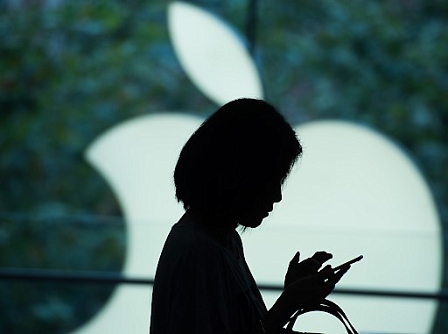Erstellt am: 17. 2. 2016 - 14:26 Uhr
Apple v. FBI
FM4 Reality Check
Listen to the programme in the FM4 Player or subscribe to the podcast and get the whole programme after the show
An American judge has ordered the firm Apple to help the F.B.I. unlock an iPhone used by one of the attackers in the mass shooting in December in San Bernardino, California, that killed 14 people.
He said that Apple must provide "reasonable technical assistance" to investigators seeking to unlock the data on an iPhone 5C that had been owned by Syed Rizwan Farook.
Apple, however is opposing the ruling, and the Chief Executive, Timothy D. Cook, has released a letter to customers calling the implications of the government’s demands “chilling.”

AFP/rix/ACR/dec
Reality Check spoke to Sean Sullivan, a security advisor at the online security and privacy company f-secure, and ask to explain the judge's request and its implications:
As Apple is framing it, what the US Government is asking for is a back door to the encryption. What it’s really asking for is a special version of the operating system without certain features, and they want Apple to give that version of the operating system, which Apple needs to sign to that the telephone operator can push an over-the-air update. And that over-the-air update will be received by the San Bernardino shooter’s phone and it will disable a few of the features like “delete this data if you put in the wrong password ten times.”
They’re not asking to have the encryption broken, they’re asking to have some of the security features disabled. And in theory this would be the right way of going about things, right? It’s a warranted process, it’s a judge, it’s extremely bureaucratic, there’s a lot of hurdles to go over and this is kind of how you would want access given, if there’s a legitimate need. It’s not an easy thing for Apple and the government to coordinate on.
But Apple’s not into this idea, right?
No, not at all! Because it’s bigger than just the US and a warranted process. If Apple does this for the United States Government or a judge, they’ll have to do it for China, they’ll have to do it for Russia, they’ll have to do it for Pakistan … or else no longer do business in those countries. This is probably in theory the right way for Apple to do it if it was just the US, but because Apple’s a global company it opens up a huge political can of worms for Apple.

AFP/Johannes Eisele
On the one hand it’s kind of nice to know that if you’ve chosen Apple, they’ve got your back but on the other hand there’s this debate – security versus trust?
I think Apple is a company you can trust, and I think by default this is probably how Apple would like to proceed. But I think it is largely a bigger political issue business wise. Director James Comey of the FBI told Congress last year that there’s no problem, the US government follows procedures and we have warranted requests, you don’t need to worry about China coming to Apple asking for the same sort of access, because they won’t produce a warrant. Now – I think that’s either naïve or stupid of James Comey because … he’s right, China’s not going to come forward with a warrant, they’re just going to come forward with demands. And “if you don’t meet our demands then stop selling iPhones. And by the way don’t you manufacture iPhones here as well. We’ll just make your life difficult in that regard”.
This is where governments really need to get their act together politically, because companies like Apple that are global, you know, they have different tax homes and they don’t bring their profits back home to America, and we don’t have global rules for how these things should be decided. So if China did try to force Apple to do it, or else get out of China, the World Trade Organisation should hit China with massive fines. But I don’t know that the World Trade Organisation’s going to have Apple’s back, so why should Apple expose itself like this? As a company it has to think of its business, and I don’t think it’s fair for the US government to put it in that position globally.



